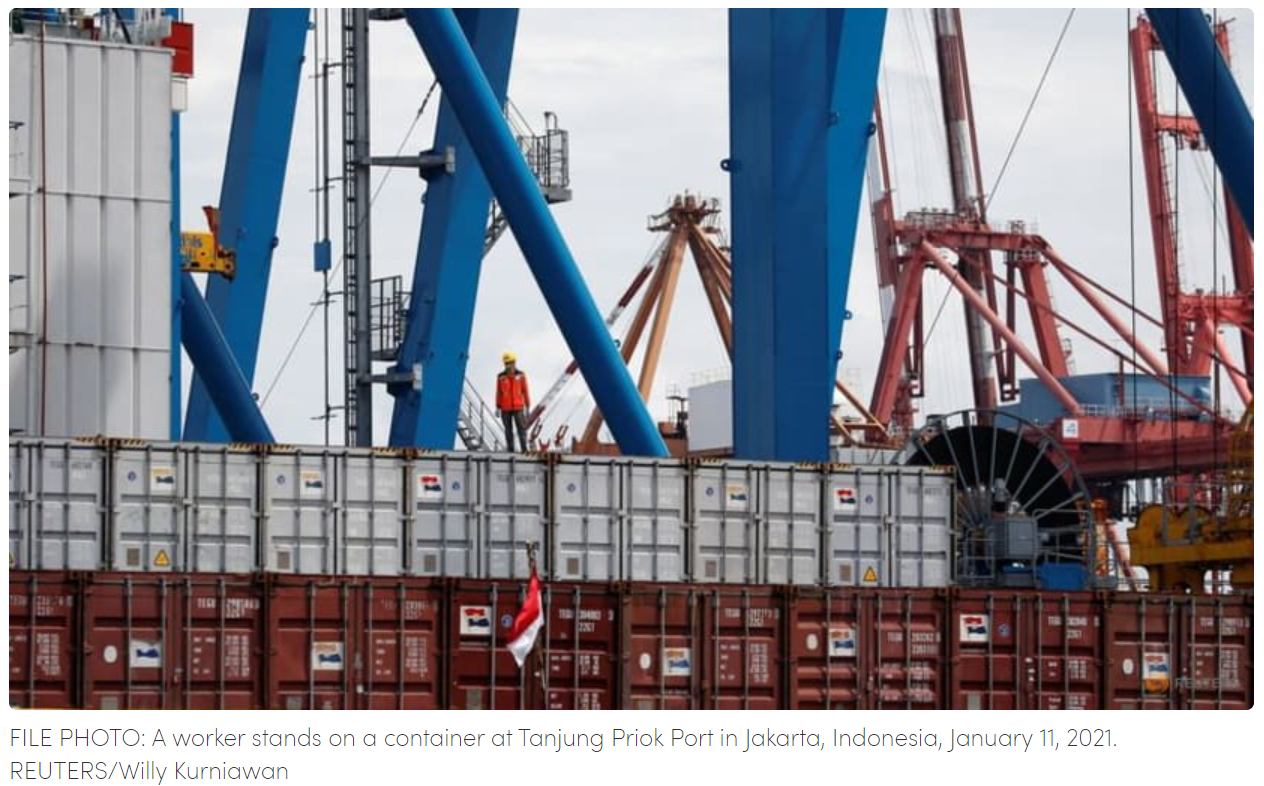Indonesia Sept trade surplus beats estimates on strong commodities
JAKARTA : Indonesia’s September trade surplus was larger than expected as exports surged on the back of booming commodity prices, government data showed on Friday, cementing hopes for a quick economic recovery.
The resource-rich country booked a September trade surplus of US$4.37 billion, data from the country’s statistics bureau showed. That was above the median estimate of US$3.84 billion, according to analysts polled earlier by Reuters.
Indonesia recorded an all-time high surplus of US$4.74 billion in August. It has posted a trade surplus every month since May 2020.
Analysts said robust exports should cushion the economic impact of Indonesia’s devastating COVID-19 wave in the third quarter.
The trade surplus would also help Southeast Asia’s largest economy narrow its current account deficit, making its financial market less vulnerable to capital outflows and allowing the central bank to keep monetary policy accommodative for longer.
“The surplus is still large because of skyrocketing commodity prices, which is positive for our economy and the (U.S. dollar) liquidity outlook,” said Fakhrul Fulvian, chief economist at Trimegah Sekuritas.
“This means Bank Indonesia will keep interest rates steady next week,” he added, referring to a central bank policy meeting scheduled to take place from Monday to Tuesday.
Bank Indonesia is expected to keep its main policy rates unchanged until the third quarter of 2022, according to a new Reuters poll.
September exports grew 47.64per cent to US$20.60 billion from a year earlier, compared with the poll’s 51.57per cent growth forecast.
Shipments of coal and copper remained strong, each rising more than 160per cent, while overseas sales of palm oil products, steel and oil and gas also registered high growth.
September imports rose 40.31per cent to US$16.23 billion, versus the poll’s 50per cent forecast, with consumer goods imports surging nearly 60per cent.
(Reporting by Gayatri Suroyo and Fransiska Nangoy; Editing by Christopher Cushing and Ramakrishnan M.)


 Thailand
Thailand




